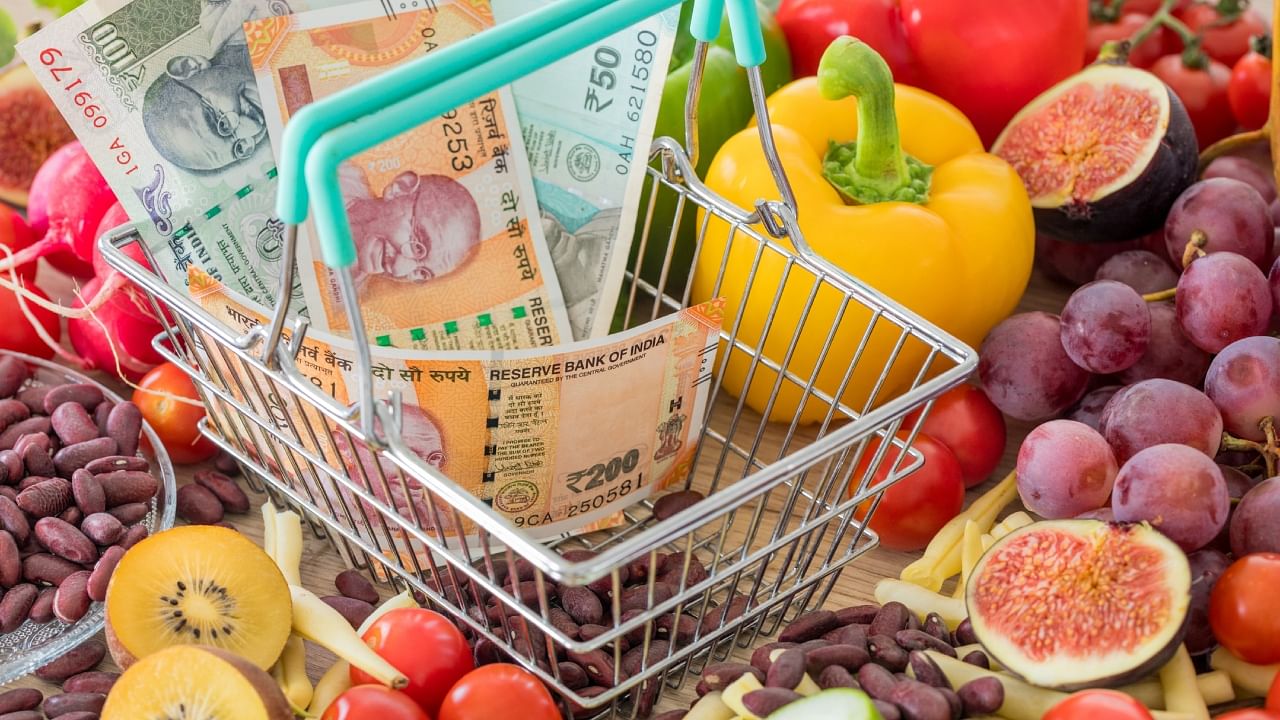
India’s retail inflation eased to 4.25 per cent in May, the lowest in 25 months, helped by moderation in food and fuel prices and positive base effect, the government data showed.
Food inflation, which accounts for nearly half of the Consumer Price Index (CPI) basket, fell sharply to 2.91 per cent in May from 3.84 per cent recorded in the previous month.
This is the fourth straight month of decline in the CPI-based inflation, which the RBI monitors for its policy action. Last week, the RBI’s Monetary Policy Committee decided to keep the repo rate unchanged at 6.5 per cent.
Also Read | RBI right again to peg interest rates
However, the central bank has decided to return to its primary objective of targeting the retail inflation at 4 per cent. The government has tasked the RBI to ensure that the CPI-based inflation remains at 4 per cent with a margin of 2 per cent on either side.
The headline inflation inching closer to 4 per cent gives relief to the RBI Monetary Policy Committee. Analysts, however, said the RBI is unlikely to cut policy rates in the current financial year given the risk of El Nino that may negatively impact the monsoon, and thus food production.
“Concerns loom on the horizon regarding the potential impact of a sub-par monsoon on food inflation in the second half of this fiscal,” said Aditi Nayar, chief economist at ICRA.
Nayar said the RBI is unlikely to lower policy repo rates in the current financial year as it has shifted its focus to achieve the 4 per cent target. “We expect an extended pause through FY2024,” she said.
Despite the sharp drop since January, retail inflation remains above the RBI’s medium-term target of 4 per cent for the 44 months in a row.
“Inflation inching closer to 4 per cent gives relief to the MPC. However, part of this softening is driven by a one-off base effect and inflation will lift to 5 per cent when the base effect fades away in the next few months,” said Dharmakirti Joshi, chief economist, CRISIL.
Data looks good partly due to the positive base effect. In May 2022, retail inflation stood at 7.04 per cent.
Vegetables became cheaper by 8.18 per cent during the month under review on a year-on-year basis. Prices of oils and fats dipped by 16 per cent. Meat and fish became cheaper by 1.29 per cent in May when compared with the prices in the same month last year.
Apart from the base effect, the other key reasons for softening of retail inflation include fall in global oil and commodity prices and easing supply chain pressures leading to better availability of inputs and reduced pressure on prices.
“Softening in categories such as fuel and core categories indicates the transmission of global decline in crude and commodity prices,” said Vivek Rathi, Director Research, Knight Frank India.
Core inflation, which excludes the volatile food and fuel items, eased to 5 per cent in May from 5.2 per cent in the previous month.